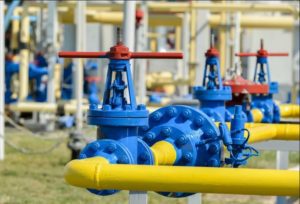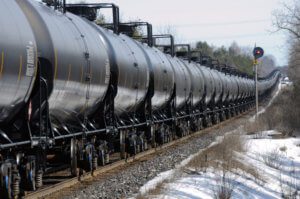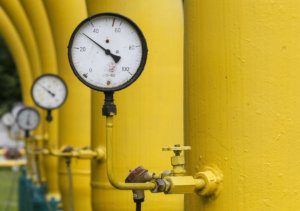
Russia’s Gazprom has boosted gas transit to the European Union through the territory of Ukraine by 25%, by 60 million cubic meters per day, JSC Ukrtransgaz has reported.
This is related to a halt for repairing two lines of Nord Stream.
The trilateral talks in the Ukraine-Russia-European Commission format on transit of Russian gas across Ukraine in 2020 would be resumed in September 2019, Vice President of the European Commission Maros Sefcovic has said.
He said in Strasbourg, speaking to deputies of the European parliament of the new convocation after the EU Summit meeting that the trilateral talks by him will be resumed in September.

Ukraine in January-May 2019 increased transit of natural gas through its gas transportation system (GTS) by 7.9% compared to the same period in 2018, to 37.628 billion cubic meters, according to recent data from JSC Ukrtransgaz. According to calculations by the Interfax-Ukraine agency, in particular transit of gas through the country to Europe for the four months amounted to 36.271 billion cubic meters (8.3% more compared to January-May 2018), to Moldova some 1.357 billion cubic meters (2.4% less).
As of late May 2019, gas transit increased by 16.5% (1.185 billion cubic meters) compared to the same month of 2018, to 8.387 billion cubic meters. In particular gas transit through Ukraine to Europe amounted to 8.209 billion cubic meters (a rise of 16.8%), Moldova some 159.5 million cubic meters (a rise of 2.3%).

Oil transit through the territory of Ukraine to European countries in 2018 decreased by 4.3% (602,400 tonnes) compared with 2017, to 13.335 million tonnes, according to Ukrtransnafta. According to Interfax-Ukraine calculations, the volume of oil pumping to the refineries of the country in 2018 increased by 0.2% (4,500 tonnes), to 2.101 million tonnes.
Thus, last year the share of transit in the total volume of oil transportation (15.436 million tonnes) amounted to 86.4%, the share of pumping to the country’s refineries was 13.6%.

German Chancellor Angela Merkel said she was not as critical as Kyiv about the Nord Stream 2 gas pipeline and was in favor of Ukraine preserving its transit role after 2019. “We know that Ukraine is against this project. I am less critical about the project and I am in favor of Ukraine having guarantees, that Ukraine will preserve its transit role,” she said at a meeting with the Ukrainian parliament speaker, Andriy Parubiy, and the heads of parliamentary groups in Kyiv.
She noted that the negotiations on Nord Stream 2 are being conducted with both Russia and the European Commission. “The matter concerns creating a transit agreement. We want Ukraine to remain an important transit country,” Merkel emphasized. The chancellor noted that in addition to Nord Stream there is also TurkStream. “Thus, gas flows are expanding from Russia to the European Union, but this does not mean that we want to reject the transit role of Ukraine. I think that gas transit revenues are extremely important for the budget of Ukraine,” she said.
Merkel noted that Berlin “very seriously” considers the strategic opinion of Ukraine on the issue of Nord Stream 2. “We want to see Ukraine as a partner with respect to transit,” she said.
Prior to this, Verkhovna Rada Chairman Andriy Parubiy called on Merkel to study in more detail the arguments of Ukraine against the construction of the Nord Stream 2 gas pipeline.
“The construction of Nord Stream 2 could bring imbalance and threaten the security of not only Ukraine but the entire European space. And this is the position of the Ukrainian parliament. I would ask that the arguments of the Ukrainian side be studied more in detail,” Parubiy said during a meeting with the German chancellor in Kyiv.
The speaker called for supporting the position of the Ukrainian parliament on the Nord Stream 2 issue.

Ukraine in January-September 2018 reduced transit of natural gas through its gas transportation system (GTS) by 7% compared to the same period in 2017, to 65.449 billion cubic meters, according to live data from PJSC Ukrtransgaz. According to calculations made by the Kyiv-based Interfax-Ukraine news agency, in particular transit of gas through Ukraine to Europe during this period amounted to 63.432 billion cubic meters (7.5% down), to Moldova to 2.017 billion cubic meters (11.1% up).
In September 2018, transit of gas decreased by 13.9% compared to the same month in 2017, to 7.232 billion cubic meters. In particular transit of gas through Ukraine to Europe amounted to 7.07 billion cubic meters (14.1% down), to Moldova to 162.1 million cubic meters (0..04% down).
As reported, Ukraine in 2017 increased transit of natural gas through its GTS by 13.7% (11.257 billion cubic meters) compared to 2016, to 93.457 billion cubic meters, in particular transit to Europe amounted to 90.749 billion cubic meters, to Moldova some 2.708 billion cubic meters.
Ukrtransgaz, 100% owned by Naftogaz Ukrainy, operates a system of trunk gas pipelines and 12 underground gas storage facilities in the country.